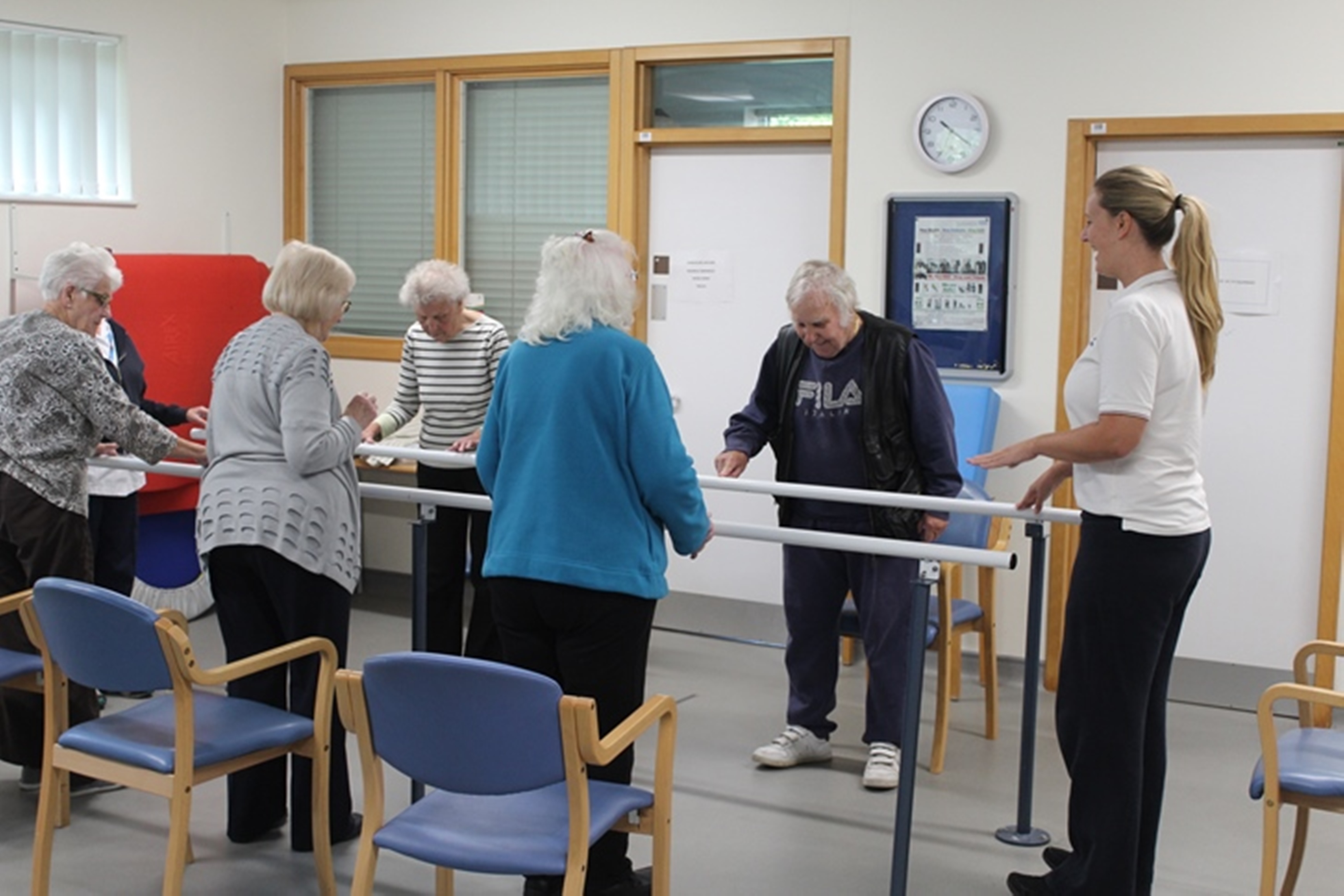Falls clinic helps people to get back on their feet – and stay there

Around one in three people aged over 65 fall each year, sometimes resulting in broken bones and even hospitalisation.
Worse, falling can shatter a person’s confidence, leading to a spiral of physical decline and loss of independence.
But innovative working by Dorset HealthCare is helping many older people in Bournemouth and Poole get back on their feet – and successfully stay there.
Today sees the start of national Falls Prevention Awareness Week (22-28 September), which aims to dispel the myth that falls are a “normal” part of ageing. And the Bournemouth and Poole Community Therapy Team has been actively proving the point.
In 2015, it set up a multi-disciplinary falls clinic at Alderney Hospital in Poole. This allows patients to be seen by a range of experts in one visit, staff who can assess the reasons why they are falling, and provide support or treatment which will reduce their risk of future falls.
Demand for the clinic is high –180 people have been seen there over the past year – but the results are positive. Most patients assessed no longer require follow-up home visits and are able to live more independently, with increased awareness of falls risk factors.
Occupational Therapist Cathy Worboys said: “There can be all sorts of reasons why people have falls – their home environment, sight problems, medication, injuries or illness. Staff at the clinic look at all the possible reasons, and then make a plan to help reduce the risks.”
Part of the service provided at Alderney is the Balance, Strengthening and Education (BSE) Group. This offers weekly exercise and information sessions over a period of around three months, aimed at people who have fallen, are afraid of falling again, and who have lost confidence in their mobility and balance.
Physiotherapist Laura Forsyth, who runs the group, said:
“We see mainly older people, and teach them some very simple exercises which will help them get around and do daily tasks – like getting dressed or using the shower – without fear of falling.
“This can involve standing-up practice, walking sideways or backwards and a bit of gentle dancing. We also do little tests to check how they are progressing. For example, the number of steps it takes to do a 180-degree turn gives useful information about a person’s risk of falling. We see a marked improvement in this measure over the course of the 12-week programme.”
“We encourage people to keep up the exercises once the course is over, either at home or with a local community group. We love having them here, but we don’t want to see them again! And our follow-up calls show more than 80 per cent of patients haven’t fallen since attending the group.”
People can be referred to the group by their GP or other healthcare professional. Ruby Griston, 89, from Poole, began attending after a number of falls at home. She said:
“This group is marvellous. The staff are so patient with us and I do feel more confident on my feet now, especially walking up and down stairs. It’s also fun – you meet people and have a laugh.”
Laura added: “If you have a falls or are worried about your balance, don’t keep it a secret. Speak to your GP, community nurse or other healthcare professional – there is help available. It’s not inevitable.”

BSE group session at Alderney Hospital
